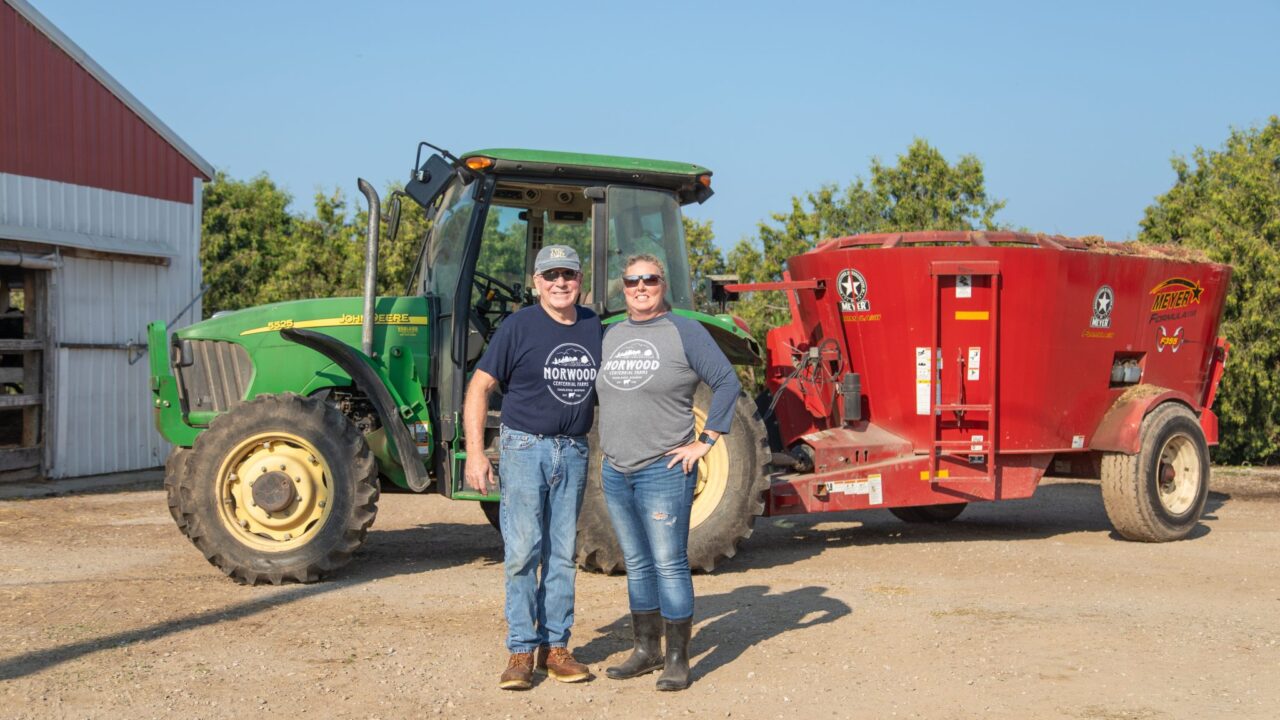Adding value to dairy farms is a common trend across the world with many selling milk, cheese, and ice-cream direct to the general public, usually via vending machines.
However, one farm in Michigan in the US has gone a step further, by selling summer sausages and beef sticks from the meat of their culled cows.
That venture has proved quite popular for the farm, as has holding farm tours and sunset walks, but there are further dollar-generating ideas on the horizon.
US dairy farm
Sarah Roy and her dad Doug Warner run Norwood Centennial Farms near the resort town of Charlevoix, Michigan. Their farm is a typical family dairy unit stretching back four generations and is almost 100 years in operation.
Sarah said: “Our farm extends to 200ac, 75ac of which are tillable. We rent an additional 338ac.
“From 1974 until 2021, my father owned and ran the farm on his own with some hired help. I then formed a partnership with him and took over the business side of the farm, letting my dad focus on doing what he loves, farming.
“My husband Jason, and our kids, Parker, Temperance, and Annabelle, help on the farm when they can,” she said.
Currently there are 130 Holstein cows milking on the farm with another 204 followers and dry cows.
“We milk the cows three times per day,” Sarah continued. “Our average yield per cow per day is 114.4lbs (51.89kg) and growing, with butterfat at 4.1% and protein 3.2%.
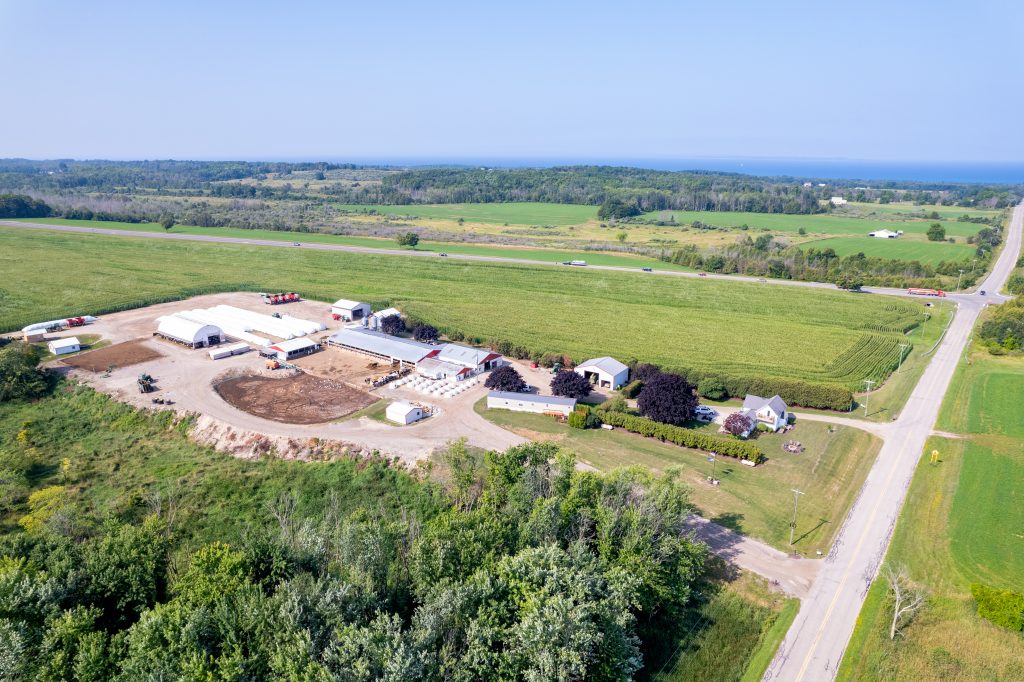
“Out of all the DHIA herds tested by Central Star Co-op in their region, which takes in Illinois, Indiana, Iowa, Michigan, and Wisconsin, we rank 73rd in ECM production for last year.
“We are hoping to move up the list this year and have a good chance at doing it since we continue to surpass our daily yield averages.
“Over the past 12 years we have bred our herd to A2 and three years ago, we started breeding for polled and are already seeing about a 50% polled rate in our calves,” Sarah added.
Cows
On Sarah’s farm, the cows are fed a total mixed ration (TMR) indoors although they do have an outdoor yard they can use for exercise.
Since 1978, the father and daughter team have operated a closed herd and used artificial insemination (AI) for all the breeding.
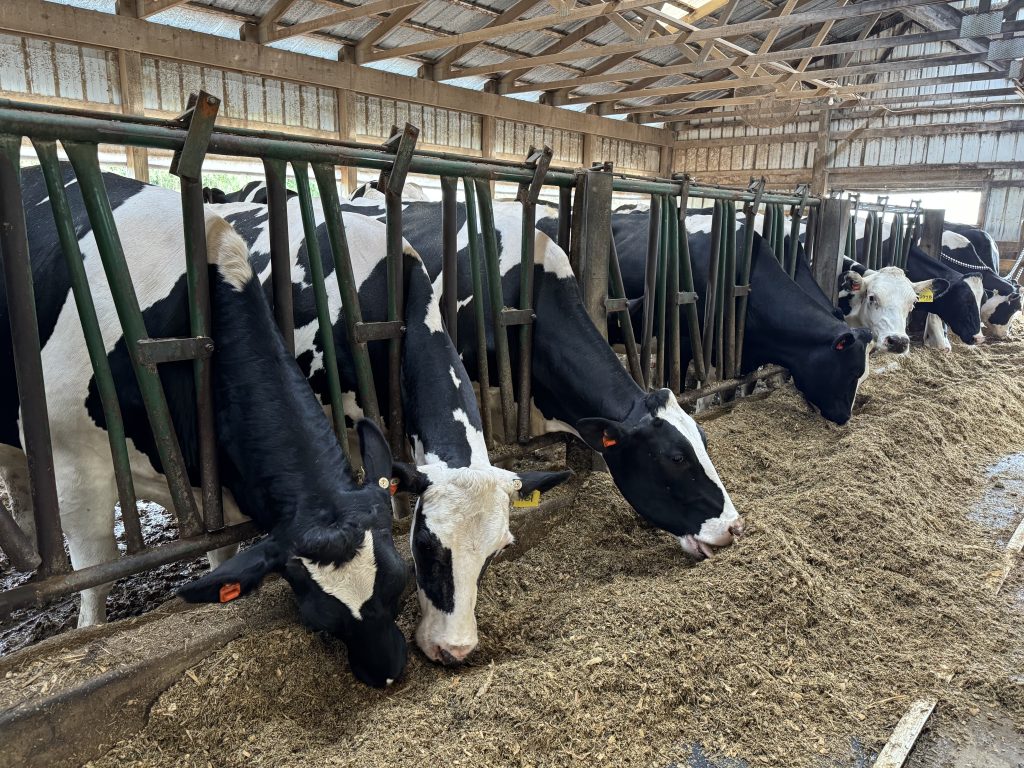
The farm uses a double four Waikato herringbone parlour with automatic cluster removers to milk the cows. A belt feeder is used to feed the milk cows and all other stock are fed using a mixer wagon.
Sarah said: “We have four full-time staff and three part-time. Our part-time guys look after all the field work and calf feeding.
“Our milk is sold to Michigan Milk Producers’ Association and Leelanau Cheese Company. The latest milk cheque we received shows we were paid US$23.40 per hundred weight (45kg).
“We grow alfalfa, corn silage, and sorghum on the farm, and have a partnership with Short’s Brewing Company which enables us to use their spent grain as an ingredient in our TMR,” she said.
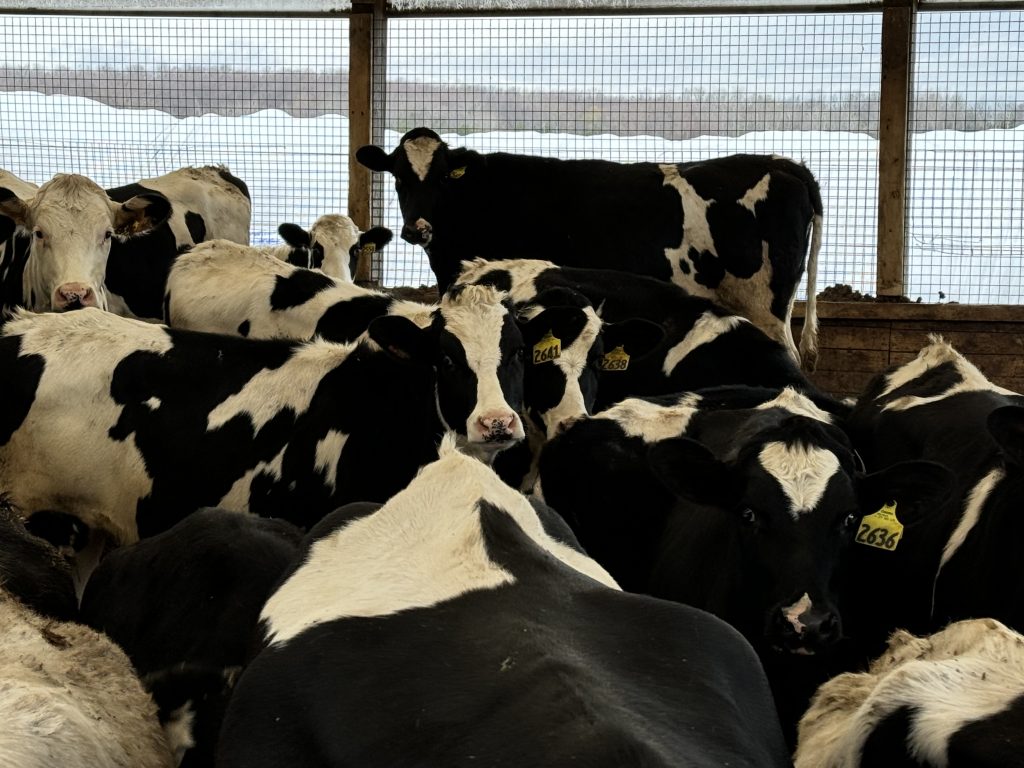
Sarah sees the need to invest in technology and cites Cow Manager as one of the best investments she has made to date.
She said: “We are also looking into other herd management software. I know a lot of farms are installing robots but we are currently quite hesitant to follow the same route, mainly because of the distance we are away from the dealer for service.”
Future plans
In terms of generating more income from the farm, Sarah says any expansion in cows numbers would be difficult given the farm’s close proximity to the local town.
However, she is adding value to the milk income by a number of new ventures with some more in the pipeline.
Sarah said: “Since my dad and I partnered, we have created two lines of value-added products. The first line we developed was our beef sticks and summer sausage produced from the meat from our culled cows.
“Next, we introduced our line of A2 cheese spreads made from our milk. In the future we are looking into adding other products from our farm for a farm shop, potentially, that would eventually stock ice-cream and our milk.
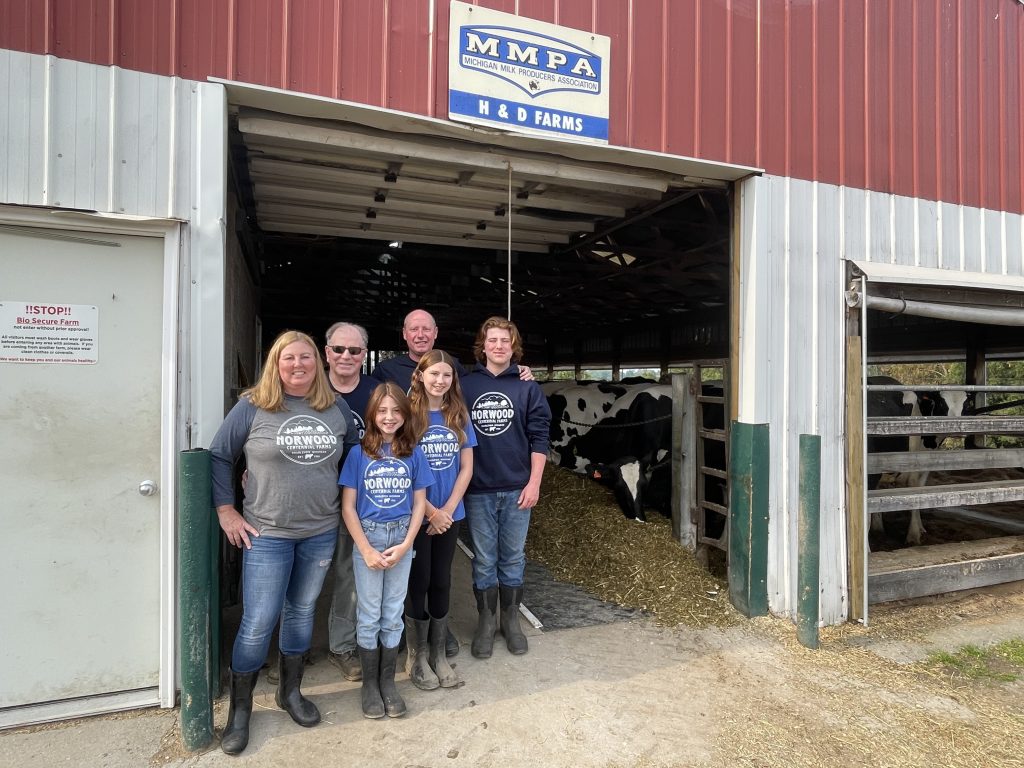
“We also host farm tours and sunset hayrides for extra income. I don’t think a herd expansion is in our future plans for the simple fact we are fairly land locked being in a resort town,” she said.
“That is why it is important to us to optimise everything we have from agronomy to milk production.”
Among the challenges the farm regularly faces being so close to the resort town is that the residents aren’t particularly impressed when manure is being spread on the fields.
Sarah said: “We also are located on a major thoroughfare which we need to use to get to most of our fields. The traffic can be pretty busy during the summer, and it can be extremely dangerous driving down the road at times.
“Also, most of the equipment dealers are far away now as farming in our area has dwindled so there is added expense for any service call.
“To overcome these issues we try and work with our neighbours as much as we can when spreading manure to not do it right before holidays if possible.
“The traffic issue is difficult, but we do work with the local sheriff’s department to have them come out to encourage people to slow down,” she said.
